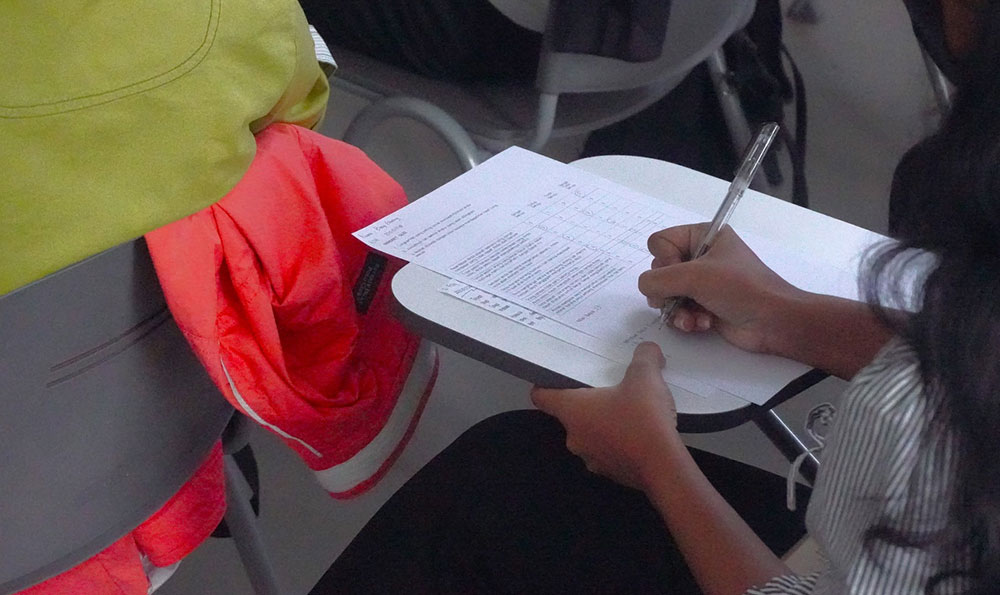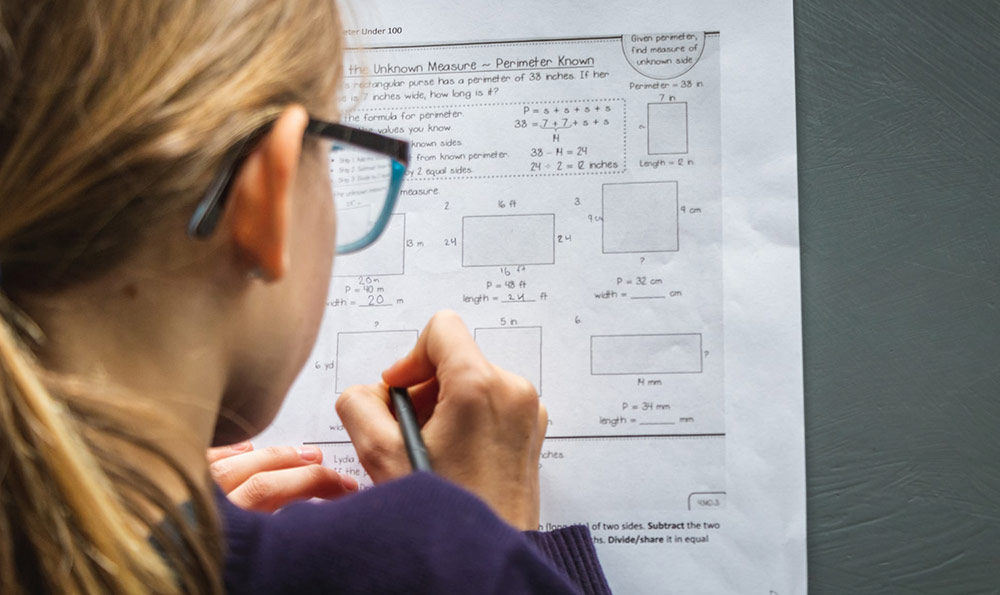考试总有一些知识是重点,英语也一样,有一些是核心考点,基本上是逢考必有。我整理了45个高考英语高频词汇2020(逢考必有),供大家参考借鉴。 45个高考英语高频词汇2020(逢考必有) 1. cost The ticket cost me ten dollars.(此句中cost用作及物动词,意为“花费”,这是cost的常用法之一。) The cost of living is much higher now than it was two years ago. (此句中cost用作名词,意为“价格,成本,费用”,这是它的常用法之二。) cost除了以上用法外,还有 其它 用法。如: ① Has this project been costed? (cost用作及物动词,意为“估价,估计成本”。) ② I must get the book at all costs. (at all costs意为“无论如何,不惜任何代价”。) ③ She saved him from drowning, but at the cost of her own life. (at the cost of “以牺牲某事物为代价”。) 2. deal Teachers should deal fairly with their pupils. (此句中deal用作不及物动词,常和with连用,意为“对待”,这是deal的常用法。) deal还有其它用法。如: ①She spent a good deal of money on new clothes. (a good deal of意为“很多,大量”后接不可数名词。) ②We tried to make sure everyone got a fair deal. (a fair deal意为“公平的待遇”。) ③My bank deals in stocks and shares now. (deal in意为“经营”。) ④The teacher dealt out the test papers to the students. (deal out意为“分发”。) 3. interest interest在教材中的意思为“兴趣”和“使感兴趣”,分别作名词和动词用。 The money I borrowed from him was repaid with interest. What he did was just to protect his own interests. 上面 句子 中的两个interest都作名词用。作“利息”讲时,为不可数名词;作“利益,好处”讲时,多用复数形式。 第一句可译为“我向他借的那笔钱是带息偿还的。”;第二句可译为“他所做的一切仅仅是为了保护他自己的利益。” 4. drive Can you drive a car? (drive用作动词,意思为“开车,驾驶”,是教材中的第一种用法。) Let’s go for a drive in the country. (drive用作名词,意思为“驱车旅行”,是教材中的第二种用法。) 除了以上用法外, drive还有其它用法。如: ①The workers carried on a drive for greater efficiency last month. (drive用作名词,意思为“运动”。) ②There are three buses parked on the drive. (drive用作名词,意思为“车道”。) ③Poverty drove the little boy to steal. (drive用作动词,意思为“驱使”。) ④I’m sure that I’ve driven my opinion home.(drive sth. home意思为“把……讲透彻,使充分理解”。) ⑤Please drive the dog away. (drive sb./sth. away意思为“把……赶跑”。) 5. join v.& n. What club do you want to join?(此句中的join是及物动词,意为“加入,参加”,这是其最常见的用法。) 另外它还有其它用法。如: ①The two rivers join at the bridge.(此句中的join是不及物动词,意为“会合,联合,相遇”。) ②The two pieces were stuck together so well that we could hardly see the join.(此句中的join是名词,意为“连接处,接缝”。) 6. dream dream在教材中有两种用法:用作动词时意思为“做梦,梦到”;用作名词时意思为“梦想,幻想”。 dream除了以上用法外,还有以下几种用法。如: Her new dress is an absolute dream. (dream用作名词,意思为“美丽或美好的人或事物”。) My aunt’s wedding ceremony went like a dream. (go like a dream是固定 短语 ,意思为“非常顺利,完美”。) 7. know I’ve known David for 20 years. I hope we have taught our children to know right from wrong. The old man has known both poverty and wealth. know在教材中的意思为“知道,了解”,作动词用。在上面的三个句子中, know都作动词用,第一个know的意思为“认识”;第二个know的意思为“区分”;第三个know的意思为“亲身经历”。 8. fail If you don’t work hard, you may fail.(此句中fail意为“失败;不及格,没有通过考试”。) fail还有其它用法。如: ① He never fails to write to his mother every week. (fail意为“忘记、忽视或未能做某事”。) ② She has been failing in health. (fail in意为“(健康状况)衰退”。) ③ His friends failed him when he most needed them. (fail意为“使失望, 辜负”。) ④ I had three passes and one fail. (fail用作名词,意为“考试不及格”。) ⑤ I’ll be there at two o’clock without fail. (without fail意为“肯定,一定,必定”。) 9. lead lead在教材中有两种用法:用作动词时意思为“引导,领导”;用作形容词时意思为“领导的,领先的,带领的”。 除了教材中的用法外,lead还有以下几种用法。如: Which road leads to the mountain? (lead用作动词,意思为“通向,通往”。) My grandmother is leading a quiet life in the countryside. (lead用作动词,意思为“过某种生活”。) Not having a balanced diet can lead to health problems. (lead用作动词,意思为“导致”。) Her brother took the lead in the high jump. (lead用作名词,意思为“领先地位”。) In this new film, she is the lead. (lead用作名词,意思为“主角”。) 10. fall The leaves fall in autumn. (此句中fall用作动词,意为“落下,下降”,这是其常用法。) fall还有其它用法。如: ①I had a fall and broke my arm. (fall用作名词,意为“跌落,掉下,降落”。) ②Our holiday plans fell through because of bad weather. (fall through 意为“落空,未能实现,成为泡影”。) ③My car is falling apart. (fall apart意为“破裂,破碎,散架”。) ④We fell about (laughing) when we heard the joke. (fall about意为“无法控制地大笑”。) ⑤Sam, please fall back on old friends in time of need. (fall back on意为“求助于,退到”。) 11. low The sun is low in the sky. (此句中low用作形容词,意为“低的,矮的”,这是low的常用法。) low还有其它用法。如: ① She’s been feeling rather low since her illness. (low用作形容词,意为“消沉的”。) ② The simplest way to succeed in business is to buy low and sell high. (low用作副词,意为“低价地,廉价地”。) ③ The gas is running low. (run low意为“几乎耗尽”。) 12. blind She is blind in the left eye. (此句中blind用作形容词,意为“瞎的,盲人的”,这是blind的常用法。) blind还有其它用法。如: ① The blinds were drawn to protect the new furniture from the sun. (blind用作名词,意为“窗帘,遮光物”。) ② The soldier was blinded in the explosion. (blind用作动词,意为“使失明”。) ③ This is a blind letter. (blind letter意为“因地址写得不清而无法投寄的信件”。) ④ He turned a blind eye to her mistakes. (turn a blind eye to意为“对……熟视无睹”。) ⑤ He’s blind as a bat without his glasses. (blind as a bat意为“完全看不见东西的”。) 13. film 大家都很熟悉film作名词时有“电影”的意思。 除此之外film还有其它的意思。如: ①I put a new roll of film in my camera. (film在此句中作名词,意思为“胶卷,胶片”。) ②It took them nearly a year to film this TV series. (film在此句中作动词,意思为“拍摄”。) 14. land The pilot landed the plane safely in the heavy snow. (此句中的land用作及物动词,意为“使着陆”,这是land的常用法之一。) The journey to the far side of the island is quicker by land than by sea. (此句中的land用作名词,意为“陆地,大地”,这是land的常用法之二。) 除了以上用法外,land还有其它用法。如: ① Many farmers are leaving the land to work in industry. (the land意为“农村,农业”。) ② The car will land you there in twenty minutes.(land用作动词,意为“使到达,把……送到某地”。) ③ He’s really landed himself in it this time. (land sb. / oneself in sth. 意为“使某人陷入困境”。) ④ He wants to see how the land lies before taking any action.( how the land lies意为“事态,形势,概况”。) 15. cause She’s always causing trouble. (此句中cause用作及物动词,意为“使发生,引起”,这是cause的常用法。) cause还有其它用法。如: ①Smoking is one of the causes of heart disease. (cause用作可数名词,意为“原因,理由”。) ②People fought for the cause of freedom and peace. (cause用作名词,意为“事业,目标”。)

英语基础的重要性
方法一:掌握基础词汇是关键

英语的学习一般分为听、说、读、写四部分,每一步都差不了单词,单词记得少,听也听不懂,说也说不来,更不用说朗读和写出一大篇文章了。这个时候就需要积累大量的英语词汇。只有掌握了英语基础词汇,才能更好的学习英语。学习词汇最好的方法就是每天坚持学习一两个英语词汇,把读音和意思都弄明白,做到会读、会写、会用。
方法二:掌握简单的基础语言
很多学生觉得学习英语要学习难的词汇,对简单的语言往往不屑一顾,只希望理解更高深的知识,而忽略使用自己学过简单的东西。这样很多学生虽然学了很多难的东西,却不会用。相反的,简单的东西如能灵活、准确地使用才是真正重要的。英语毕竟是一门语言,是帮助我们交流的,所以在说话的时候不是看一个人说的英语多么高深难懂,而是看他能否熟练运用最简单的单词、句型、语法来表达情感、思想。
方法三:培养学习英语的兴趣是原动力
俗话说兴趣是最好的老师,学习英语首先要有兴趣并努力学习下去才行。英语基础知识可能会枯燥无味,你也提不起兴趣,那么在学习的时候就不会有持续的干劲和动力,英语学习将很难坚持。相反的,一旦你对英语有了兴趣并努力地发展这一兴趣,你就会不知不觉地去做,带着强烈的欲望去读英语,听英语,说英语,写英语。有了学习英语的原动力你就会主动地找人去练英语,找一切可以提高你英语的机会去提高你的英语水平。不知不觉中你的英语就会提高。
英语基础知识在学习英语的过程中有着非常重要的作用,只要大家掌握了学习这些知识的一些基本学习方法,学习英语基础知识也就不是一件难事了。
高考英语核心词汇
高考英语阅读常考核心词汇 做高考英语阅读理解题是,不认识的单词太多会影响夜读书读,也影响对文章的理解。为了帮助大家,我整理了一些高考英语阅读词汇,希望能对大家有所帮助! battery n. 电池,一系列,排炮 barrier n. 界线,屏障,障碍物 v. 以屏障隔开 cargo n. 船货, 货物 career n. 生涯, 职业, 事业 vi. 猛冲, 飞跑 vt. 在...中急行 vessel n. 船,容器,脉管,血管,化身 vertical adj. 垂直的,顶点的,纵向的 n. 垂直物, 垂直的位置 oblige vt. 强制, 施恩惠 vi. 帮忙 obscure adj. 微暗的,难解的,不著名的,[语音学]轻音的` vt. 使...阴暗,隐藏,使...含糊,成为含糊的元音 n. 暗淡,模糊 extent n. 广度,宽度,长度,大小,范围,范围,程度 n. [律]扣押, 临时所有权令 exterior n. 外部, 表面, 外型 adj. 外部的, 外在的, 表面的 [计算机] 外部的 external n. 外部 adj. 外部的,外用的,客观的,表面的 petrol n. 汽油 petroleum n. 石油 delay n. 耽搁,迟滞 vt. 耽搁,延迟 vi. 耽搁 decay n. 衰退, v. 衰退, decent adj. 有分寸的,得体的,相当好的 route n. 航线,路线,途径 vt. 按路线发送, 改变路线 ruin n. (pl.)废墟,毁灭 v. 毁坏,破坏 vi. (使)破产,毁灭 vt. 毁坏,毁灭 sake n. 缘故, 利益, 好处 satellite n. 卫星,卫星城,随从 victim n. 受害者,牺牲 offend vt. 犯罪,冒犯 vi. 令人不适,违反 videotape n. 录像带 vt. 录像 interfere vi. 妨碍,冲突,干涉 internal adj. 国内的, 内在的,身体内部的 beforehand adv. 预先, 事先 racial adj. 种族的,人种的 radiation n. 辐射,放射线 radical n. 激进份子,原子团,激进派 adj. 急进的,根本的,激进的,基本的,彻底的 wonder n. 惊奇;奇迹;惊愕 vi. 怀疑;想知道;惊讶 vt. 怀疑;惊奇;对…感到惊讶 adj. 奇妙的;非凡的 wander vt. 闲逛走过 vi. 游荡,漫步,流浪,蜿蜒曲折,离群失散,走神 n. 游荡,闲逛,流浪,离群失散 isolate adj. 孤立的 v. 隔离,孤立 vt. 使隔离,使孤立 hollow n. 洞, 窟窿, 山谷 adj. 空的, 虚伪的, 空腹的 vt. 形成空洞, 挖空 vi. 形成空洞 adv. 有闷哑声, 完全地 hook n. 钩子,钩拳 vt. & adequate adj. 足够的, 充足的, 适当的, 能胜任的 adhere vi. 坚守于, 对...忠贞, 紧抓着, 遵守 vt. 使附着, 使粘牢 capture n. 抓取,战利品,捕获之物 vt. 抓取,获得,迷住 valid adj. 有确实根据的; 有效的; 正当的, 合法的 vivid adj. 生动的,强烈的,鲜艳的,清晰的,逼真的 consistent adj. 始终如一的, 一致的, 坚持的 ;



















